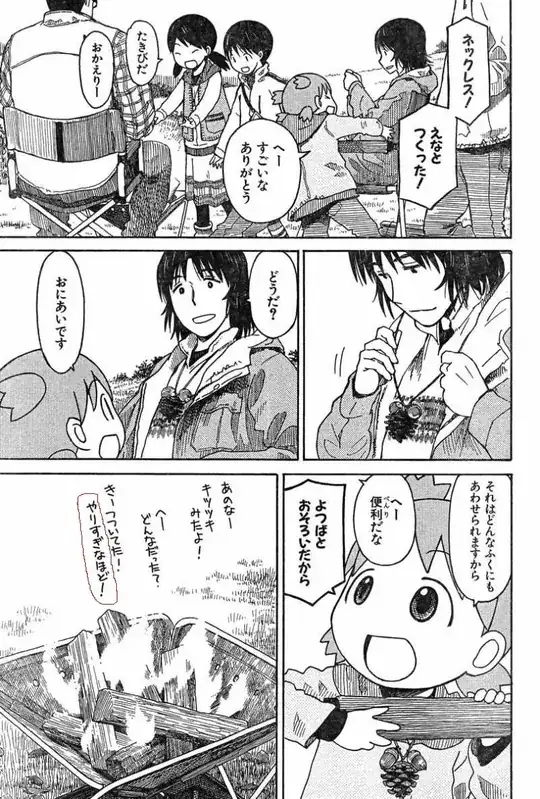I am on ch.82, pg.19 of Yotsubato! manga.
 Source: http://raw.senmanga.com/Yotsubato!/82/19
Source: http://raw.senmanga.com/Yotsubato!/82/19
What does 「やりすぎなほど」mean here ?
From what I know, 「ほど」 is used to express the extent of something and 「やりすぎ」 means overdoing/excessive etc., Does this translate to something like "Awesome!" ? Or does the literal translation mean something else?
Also, is the usage of「な」 here unconventional ? I have never really seen 「な」 used after noun so far (I am a beginner).